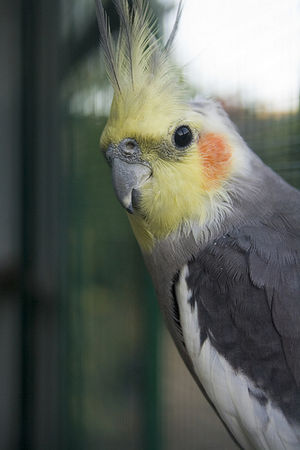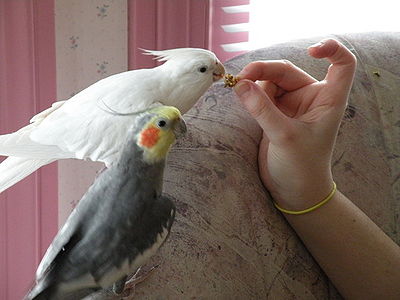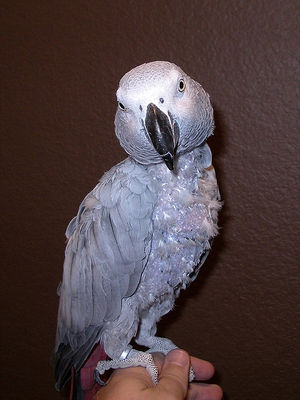
Understanding your bird’s body language gives you important clues as to what your bird is trying to communicate.
- A Cockatiel‘s crest (or other crested birds), when flattened means your bird is angry. When the crest appears relaxed, your bird is happy and content. A half raised crest means your bird is curious and somewhat alert. A fully raised crest and your bird is fully on alert.
- If your bird starts nipping at you rapidly, it could be that he’s upset with you.
- If your bird scrunches up his body and makes himself small, he’s frightened.
- Bobbing the head can mean hunger in young birds or seeking attention in older birds.
- If a male’s wings are slightly raised and his chest is puffed out, he’s probably looking for a girlfriend.
- When lowering the head close to you, your bird wants to be petted.
- A bird readying to fly will hold folded wings out and bow his front end down.
- When a bird sits on or near an object or bangs his beak against the object holds wings out, he’s claiming ownership of the object.
- A bird that rubs his head on his back while preening is distributing oils over his head and body.
- Using the beak to help in climbing is normal as the bird is testing how stable the item he’s climbing on is.
- A bird that paces back and forth quickly usually wants to be released from the cage.
- Your bird probably wants to cuddle when he gets up close to your face.
- A head tilt means your bird is checking out what’s above or below.
- When your bird turns his head around and buries his beak in his feathers, he’s going to sleep. It’s not unusual for him to stand on one leg as well.
- Only one eye open is a relaxed position but slightly alert.
- Head shaking can indicate listening to a different sound or eating something interesting.
- Grinding the beak shows relaxation and getting ready to nap.
Although not much is known about yawning, one theory is that they yawn to increase oxygen intake expanding the lungs. It can sometimes mean that something is caught in the throat and he’s trying to dislodge the object. If you suspect your bird is having difficulty and may have swallowed something, he may need to see the vet. However, yawning is a natural behavior and usually isn’t a worry.
If your bird puffs up and shakes his feathers, he’s straightening them. However if your bird remains puffed up, it is a sign of illness and he should be seen by the veterinarian.
Take the time to observe your bird and learn his/her individual body expressions.



